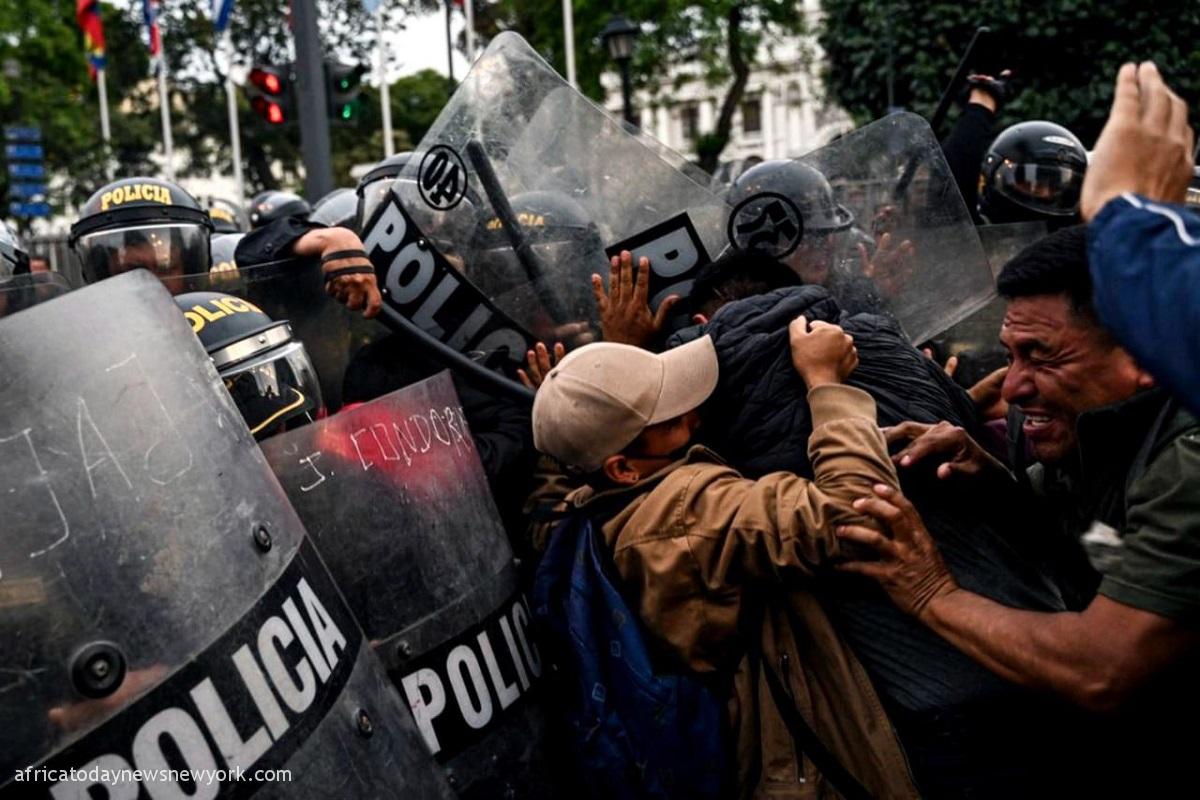The government of Peru on Sunday announced the expansion and prolonging of a state of emergency to deal with a two-month-old revolt against President Dina Boluarte that has claimed 48 lives in clashes between protesters and security forces.
Africa Today News, New York reports that even southern Peruvian regions — Madre de Dios, Cusco, Puno, Apurimac, Arequipa, Moquegua, and Tacna — will fall under the measure, which will remain in place for 60 days, according to a notice in the government gazette.
Recall that on January 13, the government had extended by 30 days a state of emergency for Lima, El Callao, Cusco, and Puno.
With the new extension not covering the capital Lima, nor El Callao — which hosts the country’s main airport and maritime terminals — the state of emergency there will expire in mid-February.
The measure authorises the military to back up police actions to restore public order. It also suspends constitutional rights such as freedom of movement and assembly.
The decree provides for an 8:00 pm to 4:00 am curfew for 10 days in the department of Puno, the epicenter of the anti-government demonstrations, where 18 civilians and a policeman died in clashes on January 9.
Read Also: Real Reason We Tear-Gassed Protesters — Lagos Police
Peru has been embroiled in a political crisis with near-daily demonstrations since December 7, when then-president Pedro Castillo was arrested after attempting to dissolve Congress and rule by decree.
Roadblocks erected by protesters have caused shortages of food, fuel, and other basic commodities in several regions of the Andean nation.
Demonstrators are demanding the dissolution of Congress, a new constitution, and the resignation of Boluarte, who as vice president took over with Castillo gone.
Several attempts to pass a bill through Peru’s legislature to allow early elections have failed, the latest on Friday, which blocked any further debate on the topic until August.
This was followed on Saturday by violent street protests in central Lima.
The demonstrations are driven by poor southern, Indigenous Peruvians who perceive Castillo, who is also from humble origins and has Indigenous roots, as an ally in their fight against poverty, racism and inequality.

